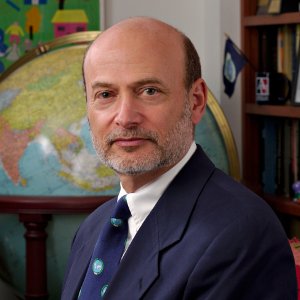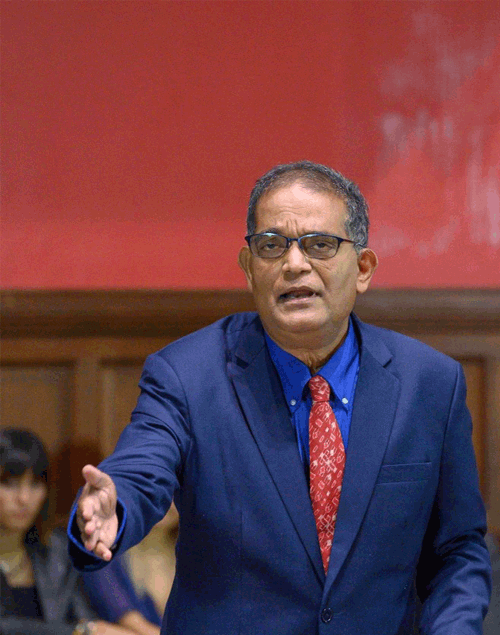
Louis W. Goodman is Emeritus Dean and Professor of International Relations at American University’s School of International Service. He served as SIS Dean from 1986 to 2011. Under his leadership SIS became the largest school of international relations in the United States. Previously Dr. Goodman served on the faculty of Yale University’s Department of Sociology and as Director of the Latin American and Caribbean Programs of the Social Science Research Council and The Woodrow Wilson International Center for Scholars. He has held visiting appointments at Tsinghua University (Beijing), the National University of Singapore, and Manipal University (India). He has been awarded Honorary Doctorates from San Martin de Porres University (Lima), the United Nations University for Peace (San Jose), and Ritsumeikan University (Kyoto). He has held leadership positions in the Association of Professional Schools of International Affairs, the American Sociological Association, the Latin American Studies Association, and the International Studies Association. The author of numerous books and articles, Dr. Goodman’s current research focuses on public goods and sustainable development and on democracy building and civilian control of the armed forces.

Amitav Acharya is the UNESCO Chair in Transnational Challenges and Governance and Distinguished Professor at the School of International Service, American University, Washington, DC. Previously he was a Professor at York University, Toronto and University of Bristol, U.K. He was the inaugural Nelson Mandela Visiting Professorship in International Relations at Rhodes University, South Africa, the inaugural Boeing Company Chair in International Relations at the Schwarzman Scholars Program at Tsinghua University, Fellow of Harvard’s Asia Center and John F. Kennedy School of Government, and Christensen Fellow at Oxford. His books include The Making of Global International Relations (Cambridge 2019: with Barry Buzan); Constructing Global Order (Cambridge 2018); The End of American World Order (Polity 2014, 2018); Why Govern? Rethinking Demand and Progress in Global Governance (editor, Cambridge 2016); The Making of Southeast Asia (Cornell 2013); Whose Ideas Matter (Cornell 2009); and Constructing a Security Community in Southeast Asia (Routledge, 2001, 2009, 2014).
From Pax Americana to a Multiplex World: The Changing Architecture of Global Cooperation
April 14, 2022 • 3:00 pm
Cohen Center 214
The shifting pattern of global leadership is examined using a new concept for describing
world order – Multiplexity. Our analysis shows the world order changing from British
leadership (Pax Britannica) to United States leadership (Pax Americana), to what we
call a “Multiplex” order, or a more decentered, pluralistically led world. To do this
we use a new dataset composed of post-World War II treaties to measure interaction
density and proximity allowing us to analyze leadership as a key driver of world order
and thus to draw conclusions about it. Our analysis shows a decline in the relative
importance of great powers, an increase in the relative leadership and power of middle
and small powers, and the significance of clusters of cooperation among nations that
are not geographically close.

